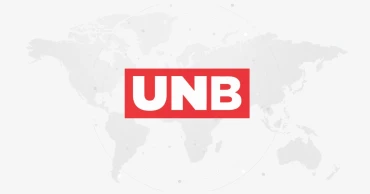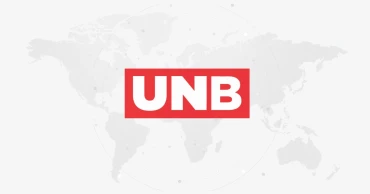Data protection
How to Avoid Mobile Data Leakage and Data Breach
Mobile devices, such as smartphones and tablets, have become an integral part of our daily lives. We use them for communication, entertainment, online shopping, and many other purposes. However, the convenience offered by these devices also brings certain risks, particularly concerning the security of our data. Mobile data leakage and data breaches have become prevalent, making it crucial for individuals and organizations to take necessary precautions to safeguard their sensitive information
What are Mobile Data Leakage and Data Breaches?
Mobile data leakage refers to the unauthorized disclosure or exposure of data stored on a mobile device. It can occur due to various reasons, including software vulnerabilities, malicious apps, weak passwords, or even physical theft of the device. On the other hand, data breaches involve unauthorized access or exposure of data stored in a system, network, or database. Mobile data breaches can result from cyberattacks, hacking attempts, or security vulnerabilities in mobile applications.
Common Causes of Mobile Data Leakage
Insecure Mobile Applications
One of the leading causes of mobile data leakage is the use of insecure mobile applications. Some developers may not prioritize security measures, leading to vulnerabilities that attackers can exploit. These vulnerabilities may allow unauthorized access to sensitive data stored within the application.
Weak Device Security
A lack of robust device security measures can make mobile devices vulnerable to data leakage. Weak passwords, lack of biometric authentication, and outdated security patches can allow attackers to gain unauthorized access to the device and its data.
Read more: Understanding VPN: The Comprehensive Guide
Phishing Attacks
Phishing attacks targeting mobile devices have become increasingly common. Attackers may use deceptive techniques, such as fraudulent emails or text messages, to trick users into providing sensitive information or downloading malicious apps. Falling victim to a phishing attack can result in data leakage.
Malware and Spyware
Mobile devices are also susceptible to malware and spyware infections. These malicious programs can be installed through untrusted apps or compromised websites, allowing attackers to monitor and collect sensitive data without the user's knowledge.
Unsecured Wi-Fi Networks
Connecting to unsecured Wi-Fi networks exposes mobile devices to potential data leakage. Attackers can intercept data transmitted over these networks, compromising the confidentiality of the user's information. It is essential to avoid connecting to untrusted or public Wi-Fi networks whenever possible.
Lost or Stolen Devices
The loss or theft of a mobile device can lead to significant data leakage. If the device is not adequately protected with passwords or encryption, anyone who gains access to it can potentially access the sensitive information stored on the device.
Read more: How to Protect Your YouTube Channel from Getting Hacked
Lack of Data Encryption
Data encryption plays a vital role in protecting sensitive information. Without proper encryption, unauthorized individuals can easily access and exploit data stored on mobile devices.
Insider Threats
Insider threats refer to individuals within an organization who have authorized access to sensitive data but misuse it for personal gain or with malicious intent. Insider threats can lead to intentional or unintentional data leakage.
2 years ago
Draft Data Protection Act: Media personnel to get 10 days to give their opinion
The government has fixed 10 days from August 11 to 20 for the media personnel to give their opinion regarding the draft Data Protection Act, said State Minister for ICT Zunaid Ahmed Palak on Wednesday.
He was speaking at a meeting on the recommendations and opinions of media personnel regarding the draft ‘Data Protection Act 2022’ at the Bangladesh Computer Council in the city.
This law will be enacted to ensure the freedom and protection of citizens' information, he said adding due to this law the data cannot be used by any foreigner.
The state minister also said initiative has been taken to enact the law so that third parties can’t get any data without the consent of individuals or organisations.
Read: Data Protection Act 2022 to protect data, not to control it: Anisul
“Data is the next wealth,” said Palak, adding that those who can properly store and manage this digital data will be a very wealthy nation, he added.
President of Editors Guild Bangladesh and Ekattor Television Managing Director Mozammel Babu and former president of Bangladesh Federal Union of Journalists (BFUJ) Manjurul Ahsan Bulbul among others gave their views on the draft law.
Another view-exchanging meeting on the draft of the law will be held with representatives of data scientists and multinational companies.
3 years ago
Data Protection Act 2022 to protect data, not to control it: Anisul
Law Minister Anisul Huq Sunday said the Data Protection Act 2022 aims to protect data, not to control it.
"Work is going on to bring the best balance between the protection of rights and the protection of data. Data protection law should be independent and separated," he added.
The minister was addressing a consultation workshop on the Data Protection Act 2022, organised by the ICT Division and held in a hybrid format.
State Minister for ICT Zunaid Ahmed Palak said: "The law is created for protecting our citizen's data, not to control the information."
Read: Child marriage: Bagerhat parents, kazi get 6-month imprisonment
"While formulating the law, the similar laws of EU (GDPR), Brazil, South Africa, Canada, US (California) were closely observed and followed," he added.
Foreign Secretary Masud Bin Momen said: "The law attempts to complement Bangladesh's national priorities in development."
"The government wishes to connect the markets and the factors of production to global supply chains in an orderly and safe environment," he added.
Representatives from both Bangladesh missions abroad and the missions in Dhaka and dignitaries from different organisations also joined the workshop.
3 years ago
Dutch data protection authority fines TikTok over privacy
The Netherlands’ Data Protection Authority said Thursday it has fined TikTok 750,000 euros ($885,000) for not offering a privacy statement in Dutch, saying many children who use the popular video sharing app would be unable to understand the information.
The agency said that by not offering a Dutch-language privacy statement, “TikTok failed to provide an adequate explanation of how the app collects, processes and uses personal data.”
It said TikTok has some 3.5 million users in the Netherlands and that Dutch privacy law is “based on the principle that people must always be given a clear idea of what is being done with their personal data.”
Also read: WhatsApp puts its new privacy policy on hold in India
The data protection authority said TikTok had “lodged an objection to the fine.”
TikTok said in a statement that its privacy policy and a “shorter and more accessible version for our younger users, available in Dutch since July 2020, has been accepted by the Dutch Data Protection Authority as the solution to this issue.”
It added that it made other changes to safeguard the privacy of minors in the past 18 months, including setting accounts of 13-to-15-year-olds to private by default and only allowing direct messaging for users 16 and over.
Also read: US banning use of WeChat, TikTok for national security
Last month, Dutch consumer group Consumentenbond said it was launching a 1.5 billion euro ($1.8 billion) claim against TikTok over what it alleges is unlawful harvesting of personal data from users.
The group and a foundation called Take Back Your Privacy demanded that TikTok pay damages to 1.2 million to 1.6 million Dutch children who use the app.
4 years ago

.jpg)

.jpg)

